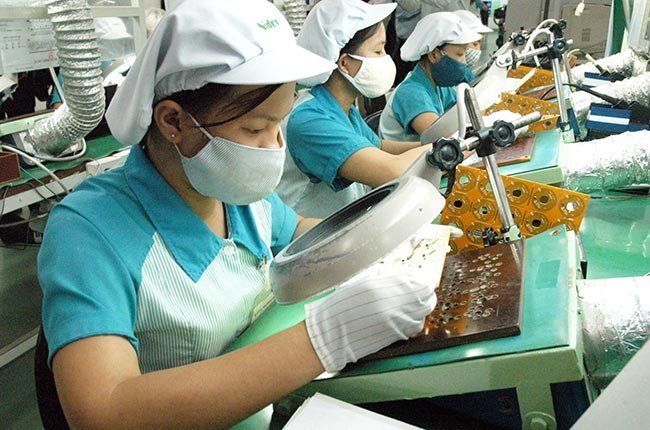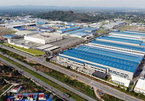The article requested should also include information on FDI incentives of India and Indonesia. That prompts me to think about what to do to fascinate really big names, not pseudonyms. Or, as many Vietnamese have put it, Vietnam will welcome “eagles,” not “tigers” or “snakes.”

India and Indonesia have shown their determination to become new destinations in the restructuring plans for the global supply chain built by superpowers and multinationals. Their determination has resulted in conspicuous and attractive incentives.
Efforts expended by these two rivals also pose a formidable challenge for Vietnam, forcing her to think hard about her reactions and countermeasures in the race.
In my opinion, the most vexing question for Vietnam is how to lure high-quality FDI inflows. In other words, it is the quality of the capital inflow that matters, not its quantity. This strategy is in compliance with the orientation of the Politburo when it comes to FDI attraction.
To address this problem, the following tasks must be fulfilled.
First, it should be determined that the change in the global supply chain is to give Vietnam a chance to filter and pick quality FDI projects which have high added value. The appraisal should therefore not be focused on the size of the project in question, but should pay attention to its quality—socio-economic efficiency, environment-friendliness, hitech content, technology transfer and energy conservation, to name but a few. Another important point relates to key phases which generate high value in the supply chain.
Secondly, FDI attraction has to meet the requirements of four factors. One, it must be put in the setting of a comprehensive plan so as to attract projects in industries which are still weak in Vietnam but have great potential for development in the long run, particularly projects with a high content of intellect. Two, encouragement should be given to partnerships with local enterprises, technology transfer, cooperation in forming production-consumption chains and conditions for local enterprises to develop. Three, the utilization of local materials should be encouraged to attach the operation of the FDI project in question to its domestic partner(s). Finally, labor and environmental issues must be prioritized.
Thirdly, efforts to attract foreign investors should not be pervasive, but should focus on some key aspects, which helps rapidly strengthen the foundation of industries and improve productivity. Investment incentives should prioritize high added value or key industries which are still weak in Vietnam, such as electronics, information technology, software programming, health care, engineering product design, carmaking industry and woodwork. Other priorities should include input materials and accessories for the textile and garment industry, footwear and processing facilities for agricultural products and seafood.
Fourthly, multilateralism and diversification must be conducted selectively.
All the above four issues will tackle the current concern about whether Vietnam is able to welcome big names, or “eagles”, or lets “pseudonyms,” or “tigers” or “snakes” come in. Here, “eagles” means large-scale projects which make use of high technology, are environment-friendly, generate high added value and are closely associated with local partners.
What meant by “Tigers” are projects, albeit big in scale, which use obsolete technology, employ an enormous contingent of unskilled foreign workers, ignore local regulations and laws, and give bribes to Vietnamese officials in project licensing and management.
“Snakes” are small scale projects using low technology abandoned overseas. These projects are likely to edge out local enterprises in the same industry. They are also prone to cause environmental pollution, make profit at all costs, or even flee the country leaving behind catastrophic consequences.
The following “metaphorical symbol” really counts in FDI attraction. Eagles come to lay eggs and never eat humans. Tigers are dangerous when at large whereas many snake bites may be lethal.
The above points should be carefully scrutinized by the Government which should subsequently come up with a resolution on FDI attraction policies. Local governments and the concerned ministries should be assigned to the task of building detailed implementation plans. At the same time, periodical reviews should be conducted to appraise what has been and has not been done.
Phan Huu Thang
IBC representative in Hanoi, former director of the Foreign Investment Agency under the Ministry of Planning and Investment
SGT

Vietnam urged to improve infrastructure to attract more FDI
Vietnam needed to improve its infrastructure in order to attract more FDI, a webinar heard on Monday.